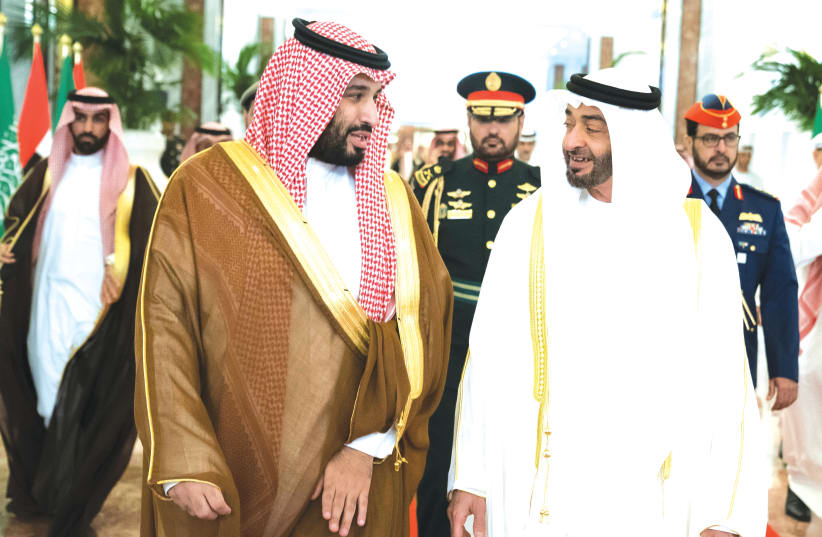Saudi Arabian Foreign Minister Prince Faisal bin Farhan said his country remains open to fully normalizing ties with Israel and joining the Abraham Accords, telling the International Institute for Strategic Studies’ Manama Dialogue Conference over the weekend in Bahrain that it was critically important to get Palestinians and Israelis back to the negotiating table that will deliver a Palestinian state within the “lines that are globally understood to eventually constitute” one.
Farhan says that Palestinian statehood would deliver peace while noting that both the 1982 King Fahd peace initiative in Fez, Morocco and the 2002 Saudi-led Arab Peace Initiative suggested full normalization in the past with Israel.
“Israel will take its place in the region – but in order for that to happen and for that to be sustainable, we need for the Palestinians to get their state and settle that situation.”
Israel participated openly in the conference for the first time.
According to Al Arabiya, the remarks by the foreign minister are part of speculation that Saudi Arabia could follow the United Arab Emirates and Bahrain to join the Abraham Accords.
In November, reports indicated that Prime Minister Benjamin Netanyahu had traveled to Saudi Arabia, although Riyadh denied he met the crown prince. The kingdom is seeking to repair its image in Washington with the incoming administration of President-elect Joe Biden.
It has also hinted that it may be open to some mending of fences with Turkey and Qatar.
The two countries are allies; Saudi Arabia led other Gulf states to break relations with Doha in 2017. Turkey sent troops to Qatar. Ankara has been openly opposed to Saudi Arabia and Qatar has used its media to try to undermine global support for the Saudis.
Recent articles have suggested that Saudi Arabia could normalize ties with Israel; it has opened its airspace to Israeli flights to the UAE. Bahrain’s decision to move forward with ties, following the UAE saying it would normalize relations in August, is widely understood to be supported by Riyadh.
This means Saudi Arabia has supported other countries moving forward and it has become more open to Israel in general.
However, the kingdom was the leading player behind the 2002 Arab Peace Initiative, which offers recognition in exchange for Palestinian statehood and Israel’s withdrawal from the West Bank. Riyadh has left open how that Palestinian statehood aspect could emerge with its wording at the Manama Dialogue Conference.
The important meeting in Bahrain brings together voices from across the region and the world, including Afghanistan, India and the US. Secretary of State Mike Pompeo addressed the conference via video. Other important messages from Jordan and Oman also supported peace in the region.
The general message from Manama is about stability in the region, which means toning down threats from Iran and hoping that Turkey will decrease the aggressive role it has taken over the past year.
